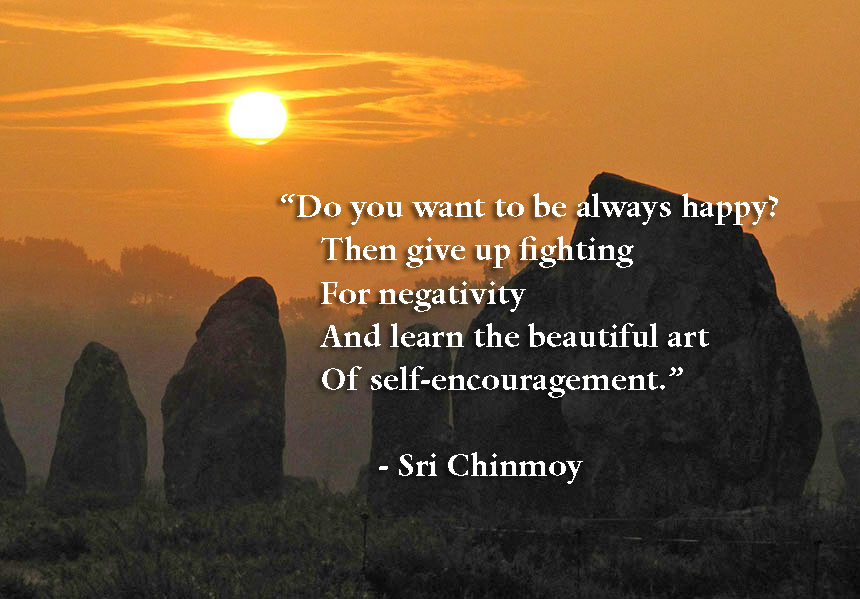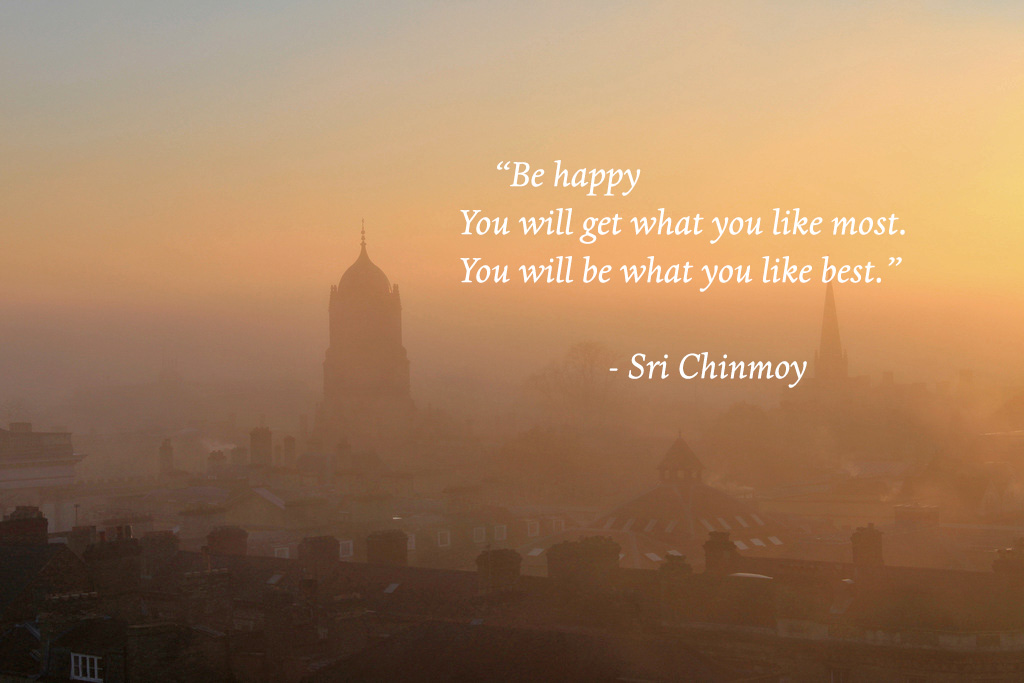
It is not by chance that we find ourselves happy or miserable. Over 2,500 years ago, the Lord Buddha left us this unmistakable truth:
“All that we are is the result of what we have thought. 
If a man speaks or acts with an evil thought, pain follows him. 
If a man speaks or acts with a pure thought, 
happiness follows him, like a shadow that never leaves him. ”
These are the simple tips to cultivate happiness – a happiness that doesn’t depend on external circumstances.
Be Happy Where you Are.
We often talk about the importance of being in the ‘here and now’. But, what do we actually mean by this? The nature of our mind is that it is often planning for happiness in the future. If we get that degree, job, relationship, if we can only move to where reasonable people live e.t.c – then we will be happy. But, with this attitude of planning for future happiness, means it will always remain elusive – like chasing a shadow.
We need to be happy whereever we are. Even in the most difficult of situations there are opportunities to be a little more cheerful and a little less frustrated. Don’t allow small things to knock you off balance, as this frustration can spoil the rest of our day.
Be Happy with your work.
A problem is that we often associate happiness with pleasure, rest and lying on beach in some far off tropical paradise. Well, there’s nothing wrong with a tropical paradise. But, unless you happen to own an island in the Bahamas, your fate will place you in different circumstances. Work is necessary and no matter how repetitive or difficult it maybe, take pride in it. Be conscious of the ability to gain satisfaction from doing a good job and serving other people.
There are times when we can be happy from a mundane activity such as washing dishes. It is such a simple task, but if we can do it cheerfully, (without complaining that someone else should have been doing it), then we will really be able to cultivate real happiness.
Part of the problem is just being aware that we can be happy even in mundane situations. Focusing entirely on the job at hand, can help us to forget the inevitable ruminations of the mind.
Society places a subtle pressure to compare ourselves with other people. When we compare we will never be satisfied. There will always be someone better off than us; there will always be someone who seems more successful. As soon as we start comparing, jealousy and frustration inevitably follow. Avoid comparing with others. Instead, learn the art of self confidence and self-respect.
Do not compare
If you want to be happy.
Do not blame
If you want to be happy.
– Sri Chinmoy
If you find yourself subject to jealousy, the best way to overcome it is by sincerely appreciating the good qualities / achievements of others. Appreciating the good qualities of others is the best way to learn them yourself
Smiling in the Face of Adversity
Life has a habit of putting is together with difficult people. Is there anyone who has the pleasure of just living with saints? – of course not … If you find your happiness challenged by other people, escaping from them will merely switch one problem for another. Keep smiling, and silently offer your good will. Don’t spend your time analysing and criticising their faults. Let the negative qualities have no impact on you.
The Heart – Mind and Meditation
As the first quote by Lord Buddha suggests, it is our thought and state of mind that determines our inner life. If we are subject to a negative train of thoughts, we will slowly but steadily become miserable. The art of happiness is to lessen the impact of our negative mind. It is not about just repeating positive mantras by rote; We are trying to bring the heart to the fore. This is just simply the more divine, peaceful part of our nature. There are times when our heart comes to the fore even without trying – this could be in the beauty of nature, listening to sublime music – But, at times we need to make the effort.
Try these simple exercises:
The great paradox is that by being aware of our state of mind, we can learn to be happy without reason – or at least happiness for no external reason.
True happiness
Is not a mental hallucination.
True happiness
Is not a complacent feeling.
True happiness
Is the spontaneous feeling of joy
That comes from knowing
You are doing the right thing
And leading a divine life.
– Sri Chinmoy
Related
photo by Tejvan
 Whether it works or not, it raises quite a few interesting ideas about the nature of depression and how to try and overcome it.
Whether it works or not, it raises quite a few interesting ideas about the nature of depression and how to try and overcome it.







